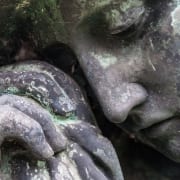“Whoever walks with the wise becomes wise, but the companions of fools suffer harm.”
– Proverbs [13:20]
OLD, BUT WISE FRIENDS
I met Tony Marone very early in my career. While only a year older than me, he possessed the wisdom of someone decades older. At the company where we worked, he was considered a rock star and was often promoted by leadership. Everybody liked Tony, myself included. I worked hard to gain his friendship and over time we became very good friends.
At a casual lunch, I once told him how impressed I was by the fact he had so many people that liked and respected him. He stunned me by replying, “Bruce, I have a lot of acquaintances, but few friends.” I was quick to refute, “It’s not true, everyone wants to know you.” He went on to explain, “Sure they do, but as soon as a cold wind blows most will be gone. If you can count on one hand the friends who will be with you in tough times and give you honest advice, consider yourself lucky.”
Tony’s words seemed dire. I was still young and impressionable. I thought to myself, How can this be true?
Tony was a street wise Catholic from a tough neighborhood. Most of what he got in life he earned on his own. He didn’t go to a top college or have great mentors. His lessons came directly from the streets of New York City. He learned how to survive in a tough environment, quickly figuring out who to trust and who not to trust. He also learned how to influence others. He was always positive and avoided making enemies. But most importantly, he learned to sift through advice and only follow the words of wise people.
THE BOOK OF PROVERBS
The book of Proverbs is one of the “Wisdom Books” in the Bible. It contains the words of advice that God wants us to hear. The thirty-one chapters take only an hour or so to read and are void of long discourses and extensive theology. They contain simple lessons with simple words. Proverbs [13:20] is an example of the practical lessons hidden away in this Old Testament book.
Eventually, we all learn to better discern between the ill-advised and wise counsel we receive. When we need counsel from a wise friend like Tony, we can look to Proverbs. When we read the verses openly and have a desire to learn, they become our friend and trusted advisor. Memorizing Bible verses allows the words to become our anchor during life’s most ferocious winds.
“Memorizing Bible verses allows the words to become our anchor during life’s most ferocious winds.”
ADVICE FROM AN OLD AND WISE FRIEND WHO CARED
Tony went on to have a successful life. He became a CEO of a regional retailer and later started his own business. When the cold November winds of my life blew, I could always call Tony to get his kind and honest advice. It was not always what I hoped to hear; but it was always what I needed to hear.
I learned what Tony meant about good friends as my life unfolded. I would get a lot of advice—some was well-intentioned but lacked candor. Others advice was self-serving and not in my best interest. Then there was other advice that was simply off the mark completely. Tony was a wise friend, whose counsel always demonstrated that he cared about my well-being. I miss Tony, he died a few years ago. But I will always remember his words.
Blessings, until next time,
Bruce L. Hartman
PARTING THOUGHTS
How do we know whether a person’s advice is good?
How often do we read the wisdom book called Proverbs?
How many friends do we have that will tell us the truth?
More importantly, who can consider us as among that list – their wise friend, the ‘Tony’ of their life?










